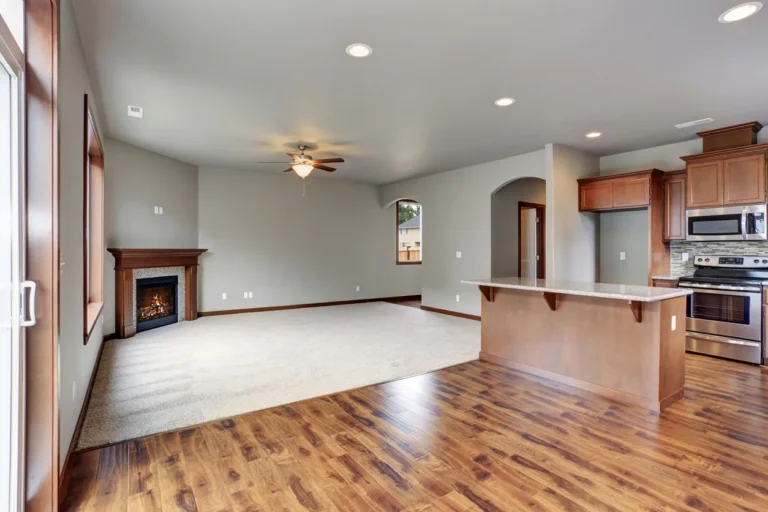Illegal Property Management Practices
In the realm of rental properties, both landlords and tenants must navigate a complex landscape of laws and regulations. Unfortunately, illegal property management practices can undermine this relationship, creating conflicts that lead to serious consequences for both parties. Understanding what constitutes illegal practices is essential for fostering a healthy rental environment and ensuring compliance with legal obligations.
What Are Illegal Property Management Practices?
Illegal property management practices refer to actions by landlords or property managers that violate tenant rights or applicable laws. These practices cause legal repercussions, financial losses, and reputational damage. Recognizing and preventing them is critical to maintaining a fair rental market.
Common illegal practices include:
- Discriminatory Practices: Refusing to rent to individuals based on race, religion, gender, or other protected characteristics.
- Neglecting Repairs: Failing to maintain a property in a habitable condition.
- Unlawful Termination of Leases: Evicting tenants without following proper legal procedures.
When landlords engage in illegal practices, tenants face unsafe living conditions and distrust. Over time, these violations affect not only individual renters but also the broader rental community.
Legal Frameworks Governing Property Management
Property management is regulated by both federal and state laws. At the federal level, the Fair Housing Act prohibits discrimination in housing based on race, color, religion, sex, national origin, familial status, and disability. This law ensures that every individual has equal access to housing.
States also enforce their own landlord-tenant laws. These cover:
- Lease Agreements: Requirements for valid lease terms.
- Eviction Procedures: Legal notice and process guidelines.
- Security Deposits: Rules on collection and return.
- Maintenance Obligations: Standards for habitable living conditions.
For instance, California Civil Code Section 1942 allows tenants to repair and deduct costs from rent if landlords ignore necessary repairs. Familiarity with these rules helps property managers avoid illegal practices.
10 Examples of Illegal Property Management Practices
1. Retaliatory Actions Against Tenants
Landlords cannot retaliate against tenants for exercising legal rights. If a tenant reports unsafe conditions and the landlord raises rent or threatens eviction in response, that retaliation is illegal. Courts often impose penalties and damages for such actions.
2. Unlawful Evictions
Evictions must follow the law. Forcibly removing tenants without court approval or skipping proper notice is unlawful. Landlords who engage in these tactics face lawsuits and heavy fines.
3. Neglecting Property Maintenance
Landlords must maintain habitable living conditions. Ignoring critical repairs—like broken heaters, leaks, or mold—creates unsafe housing and exposes landlords to legal liability.
4. Entering Rental Properties Without Notice
Tenants have a right to privacy. Except during emergencies, landlords must give proper notice, usually 24 hours. Entering without consent can be considered harassment.
5. Mishandling Security Deposits
Security deposits must be returned on time with an itemized list of deductions. Keeping deposits without valid reason often results in tenants suing for recovery plus damages.
6. Illegal Rent Increases
Most jurisdictions regulate how and when rent can be raised. Increasing rent mid-lease without proper notice violates the law. Some areas also enforce rent control ordinances.
7. Ignoring Required Inspections
Safety inspections—such as lead paint checks in older homes—protect tenants’ health. Failure to comply with inspection requirements can bring serious penalties.
8. Misusing Late Fees
Late fees must be reasonable and clearly outlined in the lease. Excessive charges or hidden fees are often ruled illegal.
9. Violating Tenant Privacy Rights
Sharing tenant information without consent or entering a home without notice breaks privacy laws. Tenants have the right to enjoy their rental without intrusion.
10. Changing Lease Terms Without Consent
Landlords cannot alter lease agreements mid-term. Increasing deposits, banning pets, or changing policies without mutual agreement is unlawful.
Consequences of Illegal Property Management Practices
Engaging in illegal property management practices carries heavy consequences:
- Fines and Penalties: Government agencies impose financial penalties for violations.
- Lawsuits: Tenants can sue for damages, legal fees, or lost housing.
- Loss of Rental License: Repeated violations may strip landlords of the ability to operate rentals.
- Reputation Damage: Negative publicity and tenant distrust lead to high vacancy rates and reduced rental income.
Landlords who comply with the law protect both their business and their long-term success.
How Landlords Can Avoid Illegal Practices
Stay Informed on Local Laws
Regularly review landlord-tenant laws. Join real estate associations, attend workshops, and subscribe to housing authority updates to stay compliant.
Communicate Clearly With Tenants
Establish open communication. Provide written policies, answer tenant concerns promptly, and issue clear updates when changes occur.
Keep Thorough Documentation
Maintain detailed records of leases, repair requests, financial transactions, and tenant communication. Organized documentation provides legal protection during disputes.
Tenant Rights to Know
Tenants benefit from knowing their legal protections, including:
- Right to Safe Living Conditions: Homes must meet health and safety codes.
- Right to Privacy: Landlords must respect entry rules and tenant information.
- Protection Against Retaliation: Tenants can report unsafe conditions without fear of eviction or harassment.
Handling Complaints Against Property Management
When tenants face illegal property management practices, they should:
- Document the Issue: Keep records of violations and communications.
- Communicate in Writing: Attempt resolution directly with the landlord.
- Seek Tenant Advocacy Help: Many organizations offer support and resources.
- File a Complaint: Report issues to local housing authorities.
- Consult Legal Counsel: Attorneys specializing in landlord-tenant law provide valuable guidance.
Resources for Landlords and Tenants
- Local Housing Authorities: Offer information and enforcement resources.
- Tenant Unions: Provide collective advocacy for renters.
- Legal Aid Organizations: Assist low-income tenants with disputes.
- Online Resources: HUD and state housing websites publish guides and FAQs.
FAQs on Illegal Property Management Practices
What should I do if I suspect my landlord is violating my rights?
Document everything, contact a tenant advocacy group, and consider legal action if violations persist.
How can I prepare for a dispute with my landlord?
Gather leases, written communication, and evidence of violations. Seek legal advice early.
What penalties exist for landlords engaging in illegal practices?
Penalties range from fines and lawsuits to loss of licenses and long-term reputational harm.
Conclusion
Understanding illegal property management practices is crucial for both landlords and tenants. Landlords who comply with laws avoid financial and legal troubles while tenants gain safer, fairer housing. By fostering trust, respecting rights, and upholding legal standards, landlords and tenants create a stable rental environment that benefits the entire community.
Ready to Maximize Your Property’s Potential?
Let us handle day-to-day operations while you enjoy hassle-free ownership. Contact us today to learn more about our property management services!
Interested in Becoming a Property Manager?
Join our franchising program. We provide the training, tools, and support you need to build a successful business. Take the first step today!





